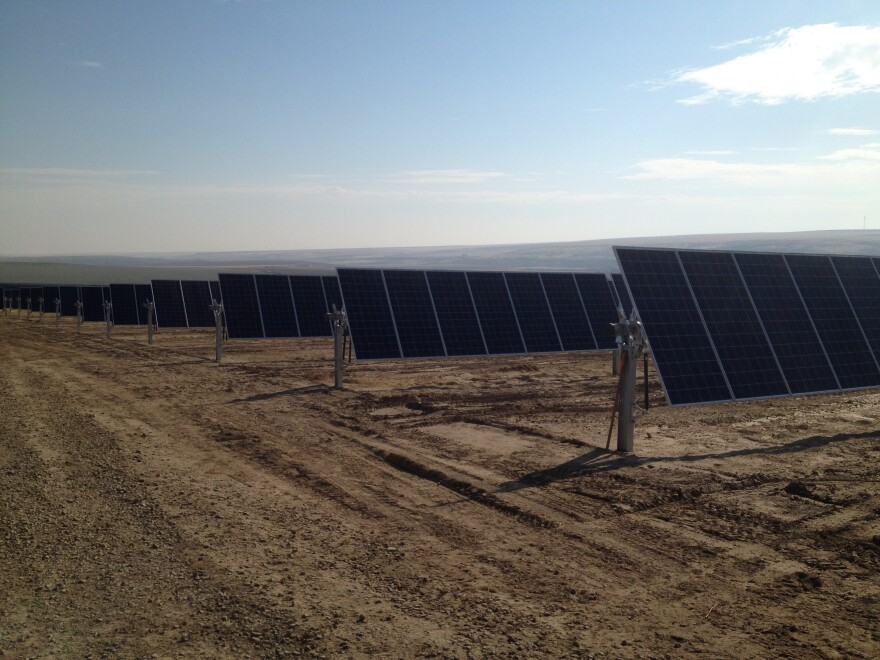Wind and solar energy facilities are bringing new economic opportunities to rural counties in Washington. But a new report shows they’re also bringing increased property taxes for some people in those counties.
The study from the Washington State Association of Counties concludes there are inconsistencies in the ways state and local governments measure the value of clean energy projects.
Paul Jewell, the organization’s senior policy director, says sometimes the companies operating the facilities wind up paying lower property taxes and landowners around them pay more. He says it’s a growing problem in the counties that house wind and solar projects.
“Some communities have developed policies that, in many ways, are more welcoming to these types of projects and it’s actually some of those counties that have started to notice this issue because they have more of the projects and have brought it to our attention," he said.
Jewell says the problem will become more acute as clean energy facilities continue to sprout up in Washington to help the state meet its strict climate goals.
He says his organization is working with state legislators to alert them to the situation and urge them to take steps to equalize taxing levels. Jewell says remedies include arrangements whereby companies that own projects pay some kind of compensation to their neighbors.
“Community benefit agreements are something that can be negotiated directly between, say, the county and the project itself that could provide benefits in a variety of different forms," he said. "We highlight an Oregon example where a project that’s located there actually makes annual payments to the residents in that area, pays a tax based on how much power they produced to the county.”
Jewell says the problem, if not addressed, could lead rural counties to say no to wind, solar and other green energy projects at a time when the state needs to add clean energy capacity to meet its climate goals.


